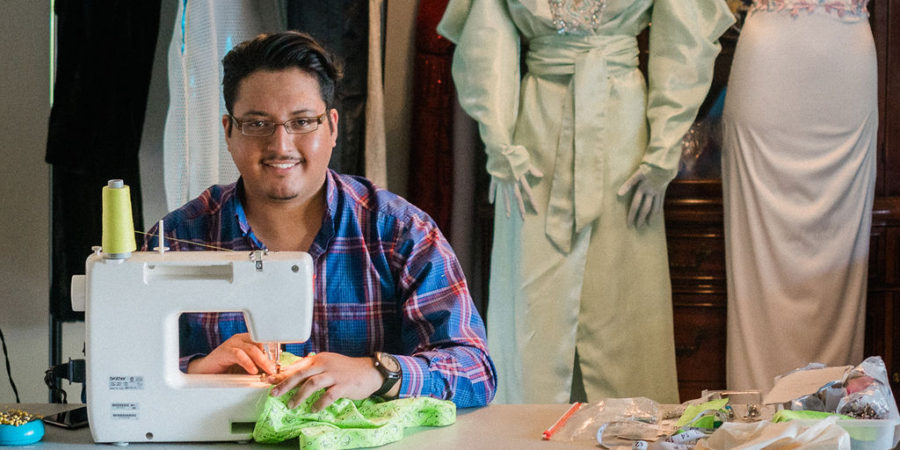From a young age, Daniel Hinojos knew he was attracted to boys. But being raised in conservative West Texas with a Southern Baptist minister as a father, coming out as gay didn’t seem like an option.
After ‘praying the gay away’ didn’t work, he came to the conclusion that being gay couldn’t be a sin. But it was clear his family and community didn’t agree, so as he grew up, he stuffed down his feelings, became a loner, poured himself into his passion for fashion, and daydreamed about one day having the independence to live life on his own terms.
When Hinojos was in his early twenties and having relationship troubles with a boyfriend, he ended up coming out to his parents. While he was initially told it was a sin and was cut off, he and his dad later reconciled. He still doesn’t discuss his love life with his mom, and his family still hasn’t met his current partner. But things are slowly but surely getting better.
In the meantime, Hinojos devotes himself to his work in the fashion industry. The 33-year-old moved to San Antonio seven years ago, and by day, he works at a business tailoring gowns. In his free time, he works on his own design collections, in addition to creating custom gowns for women who hire him to make one-of-a-kind garments. While he hasn’t yet gotten involved with the local LGBTQIA community, he hopes to eventually start tailoring or creating free custom prom gowns for underprivileged queer youth.
This is Daniel’s story of growing up under the shadow of the church, coming out as gay in a religious Hispanic household, finding his passion as a fashion designer, and pursuing his career dreams.
Profiles in Pride: How did you discover your identity and come out as gay?
Daniel Hinojos: I knew from as far back as I can remember that I was different and attracted to guys. I want to say maybe even around elementary school. You know how when you’re growing up, your parents or cousins say, “Don’t you think she’s pretty?” Or “That’s going to be your girlfriend when you’re older!” In my mind, I was always like, “OK, but I kind of like her little brother.” I always turned it into a male figure. I didn’t know what that meant at first, but I knew it was different.
I came out late; I didn’t come out until I was already moved out of the house and I was in my early twenties. The reason why I waited is because I grew up Southern Baptist. My dad was and still is a Baptist minister, so I grew up in the church. All my life I was constantly told being gay was a sin and that it’s wrong and goes against God’s word.
When I came out, I figured it was a better time than ever because I was living with my boyfriend at the time and we had gotten into an argument and decided to break up. My mother thought he was my roommate, so I ended up telling her what was going on and asked if I could move in for the time being. I decided I had to just come out and tell her, because if this happened again, what was I going to do? I remember thinking, “You can’t keep hiding. Are you going to be 40 years old and still telling your mom you have a roomate?”
I decided to bite the bullet and tell her, and then my dad found out. They were not very happy and kept telling me it’s a sin. After we worked out all of the feelings, my dad was the one who had the hardest time with it. I had worked things out with my partner at the time, so I ended up moving back in. My dad gave me a choice: “If you go back with him and live your life, I will cut you off, and we won’t support you at all.”
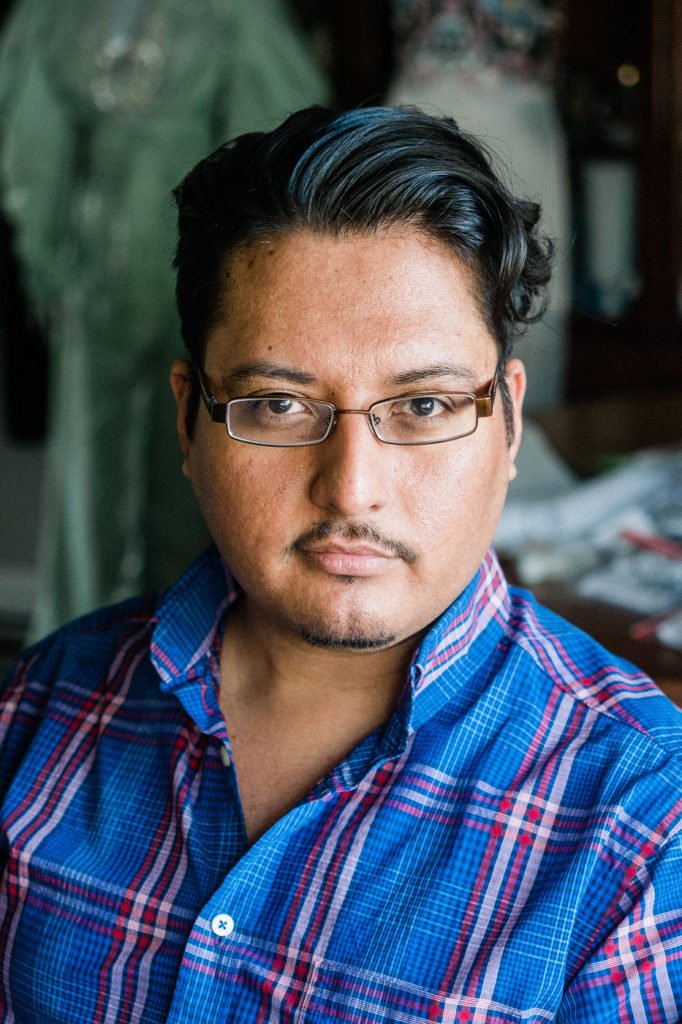
Over the years, I had mentally prepared myself for that moment. So I took a stand, and I said, “OK, if that’s how it’s going to be, I choose him. I’d rather be happy living my life than be living a lie.” I packed my stuff up and moved out.
About a week or two later, I got a phone call from my dad saying he’d been miserable. He said, “I don’t know what to say, but just know that I’d rather have you as my son than to not have you at all.” Since then, we’ve been able to maintain a healthy relationship. We never really discuss my relationships. Up until recently, it was to the point where they knew I was gay, but they wouldn’t talk about it or acknowledge it, we just know it’s there. Over time, I grew to accept that and be OK with it.
It was hard for a while, because there are times when they’d ask if I was coming for Christmas or Thanksgiving. I’d have to say, “No, because I’m spending it with my friend” instead of saying my partner or boyfriend. We used some keywords to not acknowledge the fact I was gay, and in my mind, it was out of respect for my mom.
It’s still like that with her at the moment, but my dad and I have been able to start having conversations about my personal relationships. He’s gotten to the point where he is like, “I want you to feel like you can come to me. I’ve dealt with gay people and I’ve learned how to talk to them, so don’t be embarrassed to say, ‘My partner did this or my boyfriend did this.’ I’ve learned to look past that meaning and learn they’re human just like I am.”
My dad and I had a breakthrough at that moment, so our relationship is getting stronger. With my mother, on the other hand, it’s still baby steps. At the point where I am now, I’ll take it. If I’m 60 and she’s still around and I’m still having to say “friend,” but that’s her way of acknowledging it, I’ll take it. I’ve learned to look past that, but hopefully one day, my dad, mom and I will all be on the same page and can use “partner” and “boyfriend.”
PIP: I know you’ve had a partner for a while; at this point has he still not met your parents?
DH: Yeah, not at this point. There’s still this understanding, and they know about it, but things are getting better. My dad said something really interesting; he’s like, “I’ve gotten to the point to where I can accept you and your lifestyle. But I have a lot of questions to ask you.”
Instead of getting angry, I took this as an opportunity to just take it in as, he has questions because he doesn’t know. I feel like it’s my responsibility to teach him, because my parents grew up in a time when everyone was flamboyant and they always went out. They grew up during the AIDS epidemic, when it was taking over gay society and people were dying, and at the time, people said this is God’s way of destroying them.
Everything that the news was reporting showed that gay men were living a sexual lifestyle and they were going out to clubs and doing drugs, so that’s what my parents had envisioned the gay lifestyle to be. Whereas we know they’re doctors, they’re lawyers, they’re artists, and people who are very successful. But they never praise those accomplishments, they always just look at the bad.
My uncle, my mom’s brother, is also gay and married and he’s a very successful lawyer in California. I’ve always looked up to him and praised him as being a good example to show that not everyone who’s gay likes to party and do drugs and have crazy sex all the time. So I think with that and the way I’ve been living my life has shown my parents I don’t live like that, and they’re starting to question it. They see it’s different. It’s been awesome getting them out of that mindset and showing them we’re like everyone else. We’re no different. I like men and that’s it.
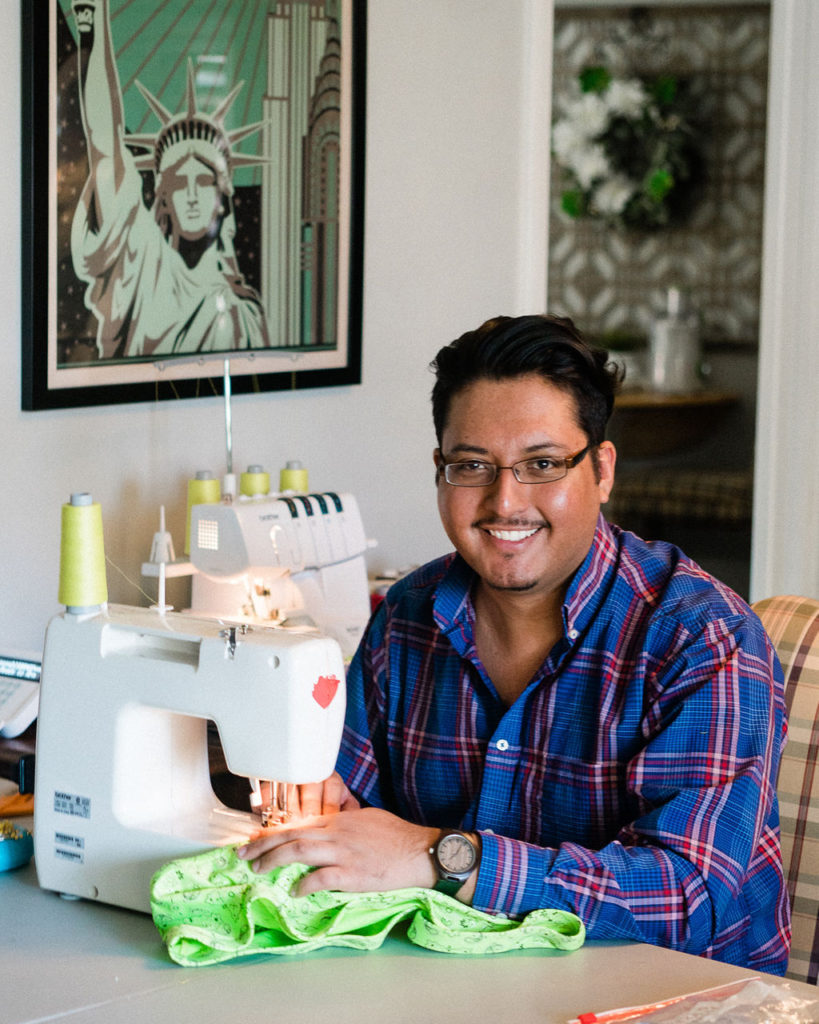
PIP: Absolutely. What was it like growing up in the church and being scared to come out as gay?
DH: I wouldn’t say it was a dark time, but I’d say it was a grey time in my life. It was living in secret all the time. I had feelings for men in secret and was attracted to some of my friends, but I was a little uneasy about trying to get close to them, because I was afraid to think of what would happen if I made a move on them. So I pushed these feelings down as far as they could go.
At that time, it was almost as if I just wasn’t attracted to anyone. I felt lost. I didn’t want to open that door to explore any of those feelings, so I just stayed to myself and I became a loner. I was a daydreamer; I dreamed a lot of what the future would hold. I couldn’t wait to graduate from school, go out on my own, move out, and explore what the world had to offer. I felt like I spent most of that time just being lonely.
PIP: Did you struggle with concerns about homosexuality being a sin, or did you never buy into that?
DH: I don’t think that I ever felt like being gay was a sin. There were times in the beginning where I’d cry and say, “God, please don’t let me be like this, I don’t want to, I know it’s a sin but I can’t help these feelings I have.”
I learned to push that aside, because in the back of my mind, I was like, why are people like this? There has to be a reason why. I don’t think God would make it a sin to be loving. What is so wrong about that?
God is love, so if He made us to love other people and to love, even if it’s the same sex, why is that so bad? Why is it so wrong? I don’t understand. I thought there has to be a reason why, so I came to my own conclusion that it’s not a sin.
God made us all different and He loves us all, so I decided it’s not a sin. I didn’t want to have those negative thoughts in my mind so I pushed them out so I could build myself up and give myself the courage to be who I am and love who I am.
PIP: I love that. So how did you get into the fashion industry?
DH: I was always into being artistic and wanting to be creative. I love to draw and sketch. In the beginning I knew I wanted to be a designer, but I didn’t know what type of designer I wanted to be.
At first I was really attracted to engineering and architecture, so I’d draw different buildings and designs I’d have in my head. But I figured once I started exploring schools how much math went into it, and I hate math. I realized that’s not going to work, so what else could I do? I think I had stumbled across a GQ magazine at the grocery store and I opened it up and was so fascinated by the clothes these guys were wearing. From there I checked out women’s magazines, and that’s when I really fell in love with fashion. I think I was a junior in high school when it started.
I had no idea about sewing or pattern making. My grandma taught me and my sisters how to sew when we were younger, but we never got into it. We could do little things like sew a button or patch up a hole, but nothing to be really creative. I started to look at the ads in the magazines and was like, what is Versace, what is Gucci? I’d heard of these brands but didn’t know about them until I researched online and saw there were creative directors who were in charge of creating these clothes and had fashion shows. I started looking them up on YouTube, and it became an obsession.
I realized this is what I wanted to do, and this is still what I’m called to do. It started back around high school when I had the idea of wanting to be a fashion designer. I’d sketch out clothes and draw out dresses and try to mimic what I’d seen in magazines and online. Then when I started looking for schools, I looked for ones that catered to that. I found a school here in San Antonio that a friend of mine had attended; at the time it was International Academy of Design and Technology. That’s where I went, and by the time I finished, it had changed its name to Sanford-Brown College. I got my degree in fashion design and merchandising.
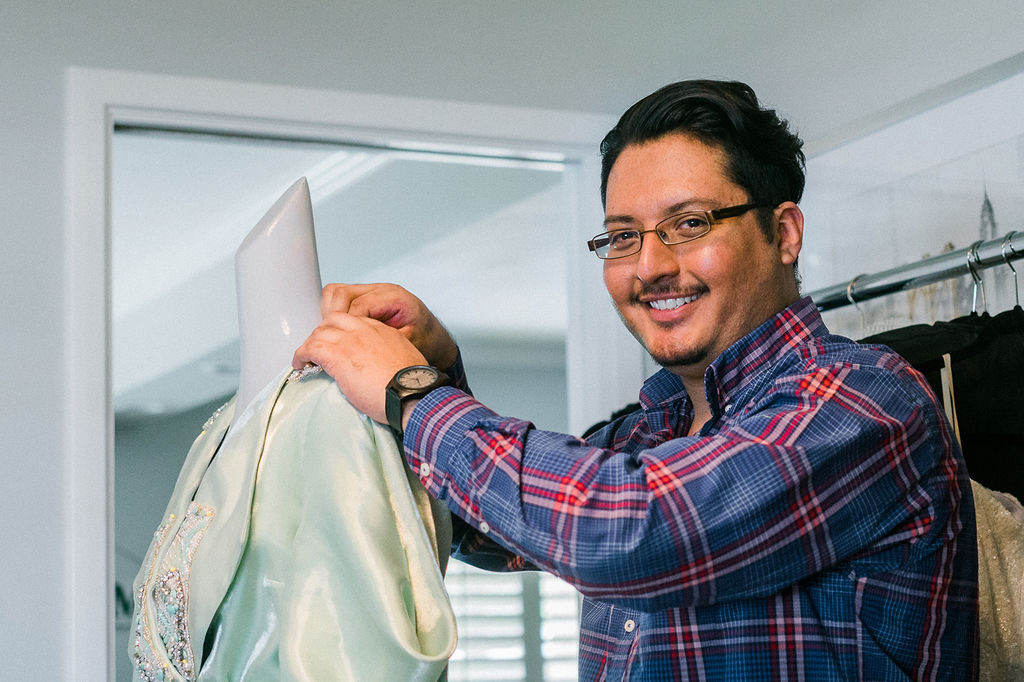
PIP: When did you start designing your own fashion line?
DH: The first one was while I was still in college. We had a senior year fashion show, and that was the very first collection I did. It was based off of a mix of floral prints, but with 1940s silhouettes.
We had to base our collection on what we’d gathered and interpreted in school. I’d found some pretty floral pink chiffon prints and denim pleated fabric and made a jumpsuit out of that, and it was so cool. It was a contest where we’d be voted on who was best in show, best overall collection, most likely to market the collection…I think four different categories, and I won three out of the four. That was a total high for me. It just boosted my confidence to do what I wanted to do even more.
Ever since then I’ve been doing little collections here and there to promote myself in the city. Right now, I have a 10-look collection that I’ll be showing in May that’s inspired by Japanese art and culture, and I’m really excited about it.
PIP: When you design a collection, how can people see it?
DH: I partner up with different organizations here in San Antonio. The first one I partnered up with was by Coco Productions. Regina “Coco” Warren is the owner of Stylish Saturdays, and basically she gets a bunch of designers and boutiques together and she produces a show and helps them promote themselves to the San Antonio community. That’s where I got my start in expressing myself and showing my work to San Antonio. There are others who do that too, so I partner up with them to be able to show my collection.
PIP: Would you like to eventually be a designer full-time?
DH: Ideally I’d love to do it full-time and be able to get to the point to where I don’t have to work a different full-time job, and make designing my career. I’d love to start my own label and have it based here. I’d love to have a brand where I can welcome people to come in and talk about a dress they need, and I can make it for them.
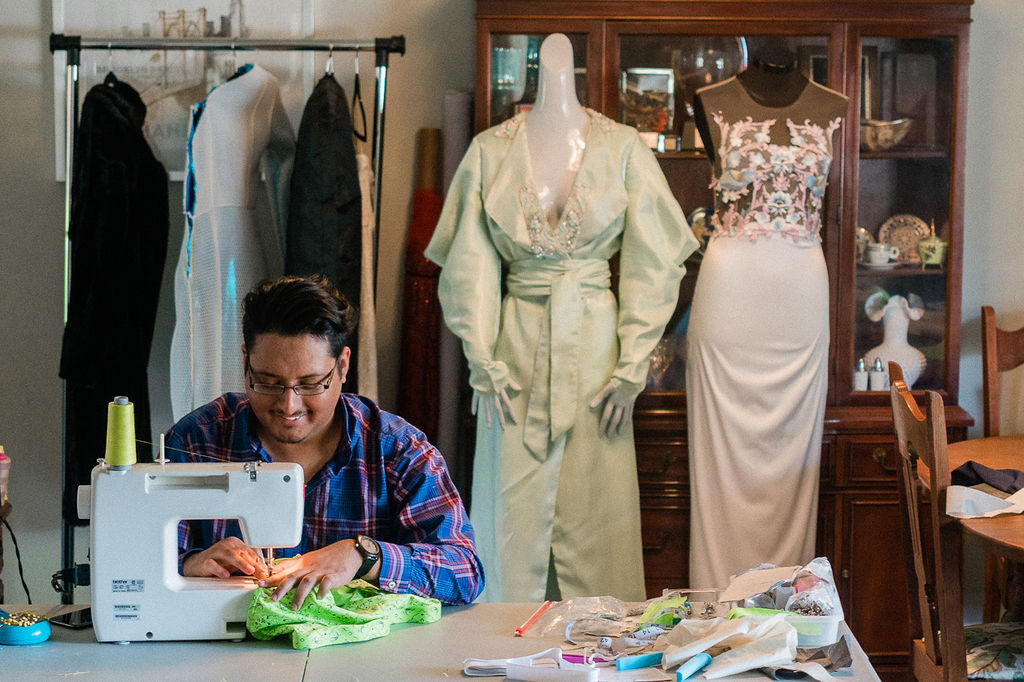
PIP: Do you do custom designs for people, or mostly collections for fashion shows?
DH: I do mostly custom designs for people in San Antonio. If I do a collection, it’s to try and promote myself, but I also sell these garments. I usually try to do it around the end of the year, and then maybe one in the middle of the year around the summertime. The reason I do it around September/October is because that’s when prom fashion season usually starts, so if I can promote the collection for evening gowns and special occasions, I try to sell it for prom season so I can get promoted. That was successful last year; I was able to create six prom dresses.
PIP: Are you involved in the LGBTQ scene in San Antonio?
DH: Not yet, I’m not really aware of what’s going on and don’t have many gay friends here, but I’d love to eventually.
It struck me when I saw on that show on FX, POSE, about the ballroom scene and how these kids were basically just thrown out on the streets. They had to find these families to survive in NYC that would welcome them, and that’s how they got involved in the ball scene. It just broke my heart to see kids like that struggle. And that it’s still like that here. We don’t hear about it as much and sometimes don’t even talk about it, but it’s still going on and it’s still a struggle.
If I did get involved, it would be with an organization that caters to LGBTQ youth and get involved in helping them if they’re struggling with issues like that. I’d also love to be able to offer my services and help someone, like with a gown or something they need, because these gowns can go up to hundreds of dollars and they’re expensive. I’d love to find someone in need and make a gown for them at no cost. Everything would be out of pocket from my end…that’s something I’ve been thinking about. I just need to find that outlet or who would be interested in that. That’s something I’d like to be involved with, or perhaps I could even start it!
Keep up with Daniel on Instagram @dhinojos86.
Header image and all others by Parker Radbourne of The PK Photographs. We owe a huge thank you to Parker, a member of the LGBTQ community, for taking photos of our San Antonio interviewees pro bono and bringing these stories to life.

